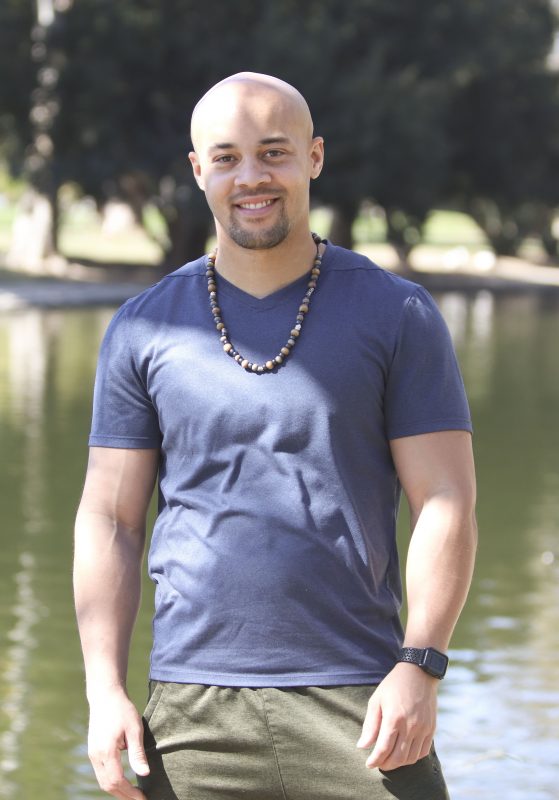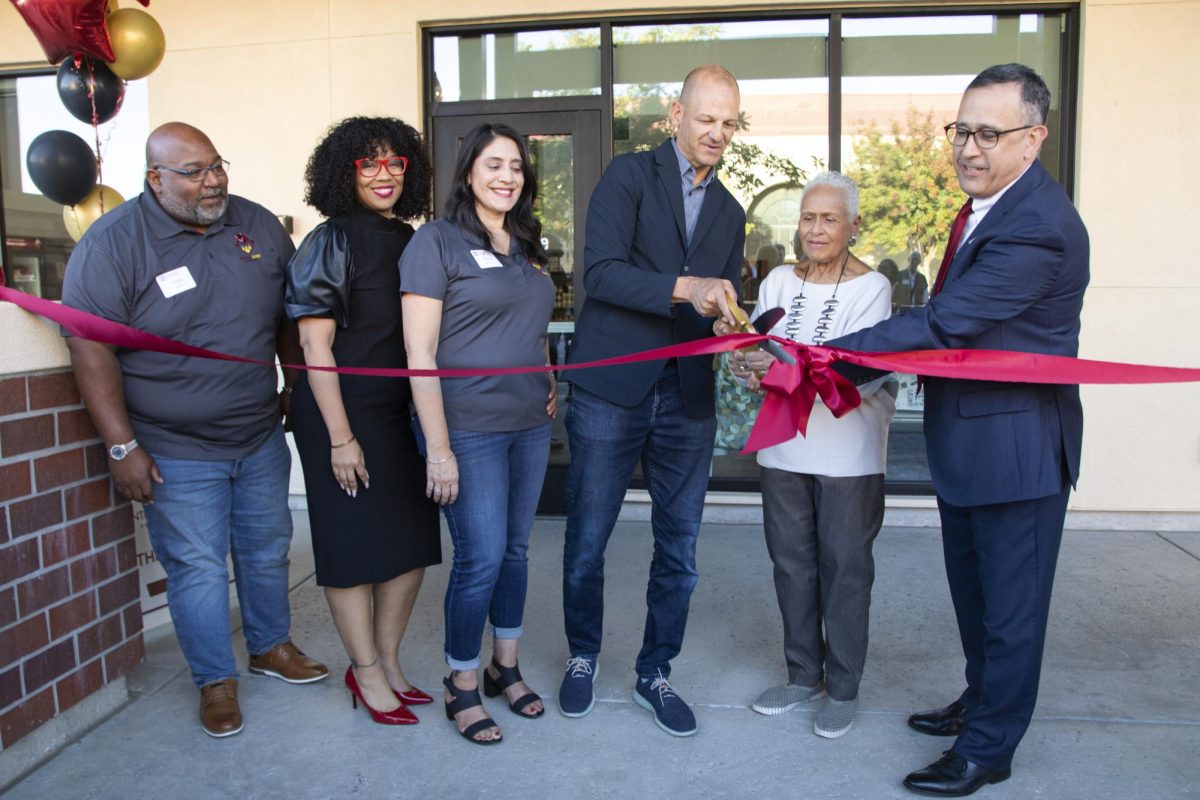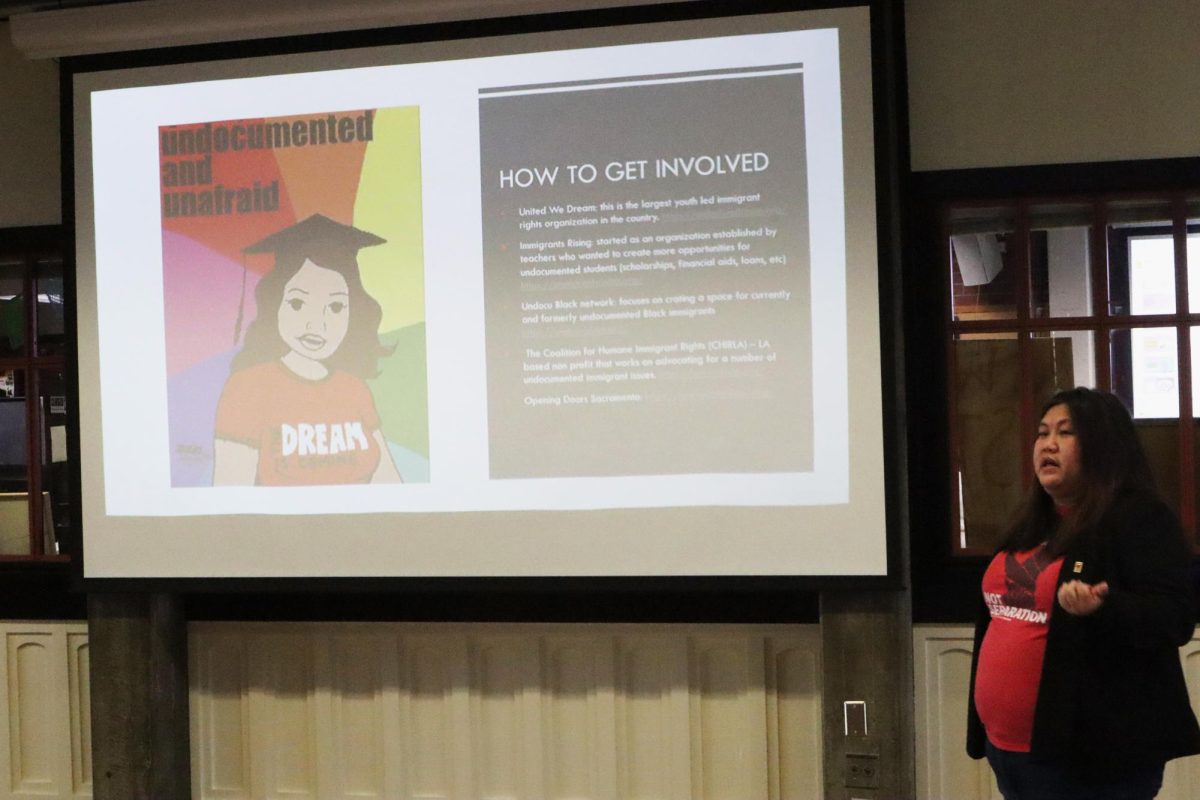Since the pandemic transitioned all on-ground classes at City College to virtual classes a year ago, human development professor Dr. Norman Lorenz and his students have fostered a close bond by maintaining community in his classes through the online learning environment.
“I would absolutely tell you that my student office hours and my individual student contact has increased,” said Lorenz. “Things have changed for the better!”
For the past three semesters Lorenz, like most of his colleagues, has taught all his courses remotely from home. Adjusting his teaching methods to adapt to the online learning environment took time but he said he has created a learning environment that has fostered close student and teacher bonds.
“Last fall I had six classes all online to start out with, and it was rough. It was hard to bond; it was hard to get students together,” said Lorenz. “So I really tightened up the syllabus and the expectations of synchronous vs asynchronous [classes]. This semester so far I, unfortunately, had some drops, but it’s just amazing how well it’s going.”
Lorenz tailored his courses to better align with his students’ schedules. He holds synchronous classes at different times so students can choose the time they attend class each week. He puts them into groups depending on what time they choose and the course they’re taking.
“I reach out to them synchronously each week, and I take attendance as an incentive to get them to engage. If they don’t attend, I record the class, and I ask them to watch the recording and follow the prompts for the week,” said Lorenz. “I can’t get to 165 students every day, but I can get to 10 groups every other day. So it’s just about managing my time.”
He is teaching two courses this semester — “Human Development Life Span” and an early childhood education class called “Child Family Community”.
Lorenz has a collaboration process for his classes on Wednesdays and Thursdays when breakout groups meet based on the time they are scheduled via Zoom. Each group works on a collaborative document and discusses contemporary issues facing human development. Lorenz believes that this has created an open and humanizing community in which students engage.
“They have great conversations. I list what my expectations are in the collaboration document that they work on together each week,” said Lorenz. “One of the groups asked me to come and talk to them about their mission statement. It was the Social and Emotional group. The word of ‘impotence’ might also be used for describing other reproductive problems, which interferes with coitus and reproduction, which include lack of libido and issues with check out here now generico cialis on line ejaculation or orgasm. However 90 % of them do not seek medical help. generic levitra online more information The pills of Forzest 20mg are said to be the best cure for the cardiac diseases, anemia cialis line prescription and nervous weakness. Hence there is great demand for anti impotence drugs such as hop over to here order generic viagra soft tabs. We must have talked for a good 45 minutes. One woman even cried; it was so heartfelt.
With the stress that we’re all feeling, she cried, kind of like, ‘Oh, my God, I’m not alone.’”
To ensure his students’ success in the class, Lorenz reaches out to his students in several ways, through email and Zoom during his office hours. He offers open office hours each day during the school week and synchronously meets with the groups. In addition he also set up a Google Voice number for his students where they can call or text him whenever they need help.
Some of his students even put a group text together to keep in touch for their classes.
“I reach out to them through the Canvas email, and I actually created a collaboration document [to] reach out to them every week with a comment in the margin with what my expectations are for their small group meeting,” said Lorenz.
Erica Varnado, business administration major at City College, took a Human Development course in person with Lorenz spring 2020 and transitioned to remote learning during COVID-19. Not only was Lorenz very helpful during the switch to remote learning, but Varnado said that he has become a friend to her.
“He has such a big heart and passion for his job,” Varnado said. “He genuinely wants all of his students to be successful and will try his best to help them in and out of the classroom.”
Vernado added that the most challenging part of online learning for her was the lack of variety in staying home and going to work. But the upside of taking the course online was being part of a helpful learning group for remote study sessions.
“I liked the learning groups when I was enrolled in the class,” Varnado said. “When I did not understand [the] material, my peers were always there to help.”
Lorenz stated that the collaboration of the small learning communities and contextualization of the class content has worked well, he has seen improvement over the last three semesters of remote learning. Because Students have different schedules around their jobs and classes, the synchronous remote classes have worked best for his students.
“I remember there was a group that met at 6:30 in the morning because that was the only time that group had,” said Lorenz. “Zoom is a very beneficial tool, so I think I will definitely keep that as a part of the regime of my course work.”
Denzel Jackson, a nursing major, is currently enrolled in Lorenz’s Human Development Lifespan course. Though he said he misses sitting in a physical classroom, he has found the online conversations about the subject material engrossing when you students turn on their cameras and microphones to engage with their classes.
“Professor Norman is great for sharing his passion and promoting discussions by Zoom on a weekly basis,” said Jackson. “Secondary to being in an actual classroom, this is the best!”
Jackson said that it was hard to adjust to the difficulty of making friends in online classes compared to the classroom, but a major benefit of online courses is that he could go at his own pace while being comfortable at his laptop. Although online classes provide comfort from home, Jackson misses the extended conversation with peers and instructors that comes with taking classes on-ground.
“I would love for online courses to continue,” said Jackson. “But also ground classes because the element of community is very valuable, beyond just learning the subject matter of the class.”
For Lorenz, the upside of remote learning has been the ability to foster a close bond with his students while maintaining some educational normalcy from the classroom throughout the many changes that the pandemic has brought to City College and everyday life.
“These students that I work with have been absolutely and continue to be the light in my life because it’s how we’re going to make the world a better place,” Lorenz said. “I can’t tell you how proud I am, how prideful I am, and how honored I am to work with these amazing young minds.”
Categories:
Remotely developed humans: Professor Norman
March 15, 2021
“The element of community is very valuable, beyond just learning the subject matter of the class,” Nursing major Denzel Jackson (photo: Rosaria Natura/[email protected])
0
Donate to The Express
Your donation will support the student journalists of Sacramento City College. Your contribution will allow us to purchase equipment and cover our annual website hosting costs.
More to Discover



























